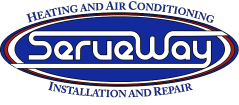A well-functioning HVAC system is crucial for maintaining a comfortable home environment. Over time, however, wear and tear can take a toll on your HVAC unit. Recognizing when it’s time to replace your system can help ensure continuous comfort, efficiency, and peace of mind. Understanding the common signs of an aging system can make a significant difference in maintaining a cozy home.
Signs Your HVAC System Is Nearing the End of Its Lifespan
Knowing the signs that your HVAC system is nearing the end of its lifespan can help you avoid sudden breakdowns and costly repairs. One of the first indicators is the age of your system. Most HVAC systems have a lifespan of about 10-15 years. If your unit is within this range or older, it may be time to consider an HVAC replacement.
Another sign is the unit’s overall performance. If you notice uneven heating or cooling, it could indicate that the system is losing its efficiency. Rooms might feel too hot or too cold despite constant adjustments to the thermostat. This inconsistency in temperature is a clear sign that your HVAC system is struggling to maintain comfort levels.
Frequent cycling on and off is another indicator. Your HVAC system should run in consistent cycles through the day. If it turns on and off frequently, it might be working hard to maintain the set temperature. This excessive cycling can lead to more wear and tear, further shortening the lifespan of your system.
By recognizing these signs early, you can make informed decisions about whether it’s time to replace your HVAC system. This proactive approach helps maintain a comfortable home environment and prevents unexpected breakdowns.
Increasing Frequency of HVAC Repairs
As HVAC systems age, the frequency of repairs tends to increase. Constant need for HVAC repair services is a strong indicator that your system might be nearing the end of its useful life. Our professionals often see units that require frequent fixes, becoming more of a financial burden over time.
One reason for frequent repairs is the wear and tear on the system’s components. As parts age, they become less reliable and more prone to failure. Frequent breakdowns can cause significant inconvenience and discomfort, especially during extreme weather conditions.
Another factor is the increasing cost of repairs. As your system ages, finding compatible parts can become challenging and more expensive. Older systems might require specialized components that are harder to source, leading to higher repair bills.
If you find yourself frequently calling for HVAC service, it might be more cost-effective to invest in a new HVAC installation. The initial investment in a new system can save you money in the long run by reducing the frequency and cost of repairs. Moreover, a new system can offer improved efficiency and performance, ensuring a more comfortable home environment.
By evaluating the frequency and cost of repairs, you can make an informed decision about whether it’s time for an HVAC replacement. This can lead to long-term savings and greater peace of mind.
Rising Energy Bills and Decreased Efficiency
One clear sign that it may be time to replace your HVAC system is if you notice rising energy bills without any changes in your usage. An older HVAC system works harder to maintain the same comfort levels, which results in increased energy consumption. Our professionals can assess your system’s efficiency to determine if your rising energy costs are due to an aging unit.
Decreased efficiency is another indicator. As HVAC systems age, they lose efficiency and require more energy to function properly. This not only results in higher bills but also contributes to inconsistent temperatures throughout your home. You may find that some rooms are too hot while others are too cold, a common sign that the system is struggling to distribute air evenly.
Another factor that contributes to decreased efficiency is outdated technology. Modern HVAC systems, including Daikin HVAC and Daikin ductless units, are designed with advanced technology to maximize energy efficiency. If your current system is outdated, upgrading to a newer, more efficient model can significantly reduce your energy consumption and costs.
By monitoring your energy bills and paying attention to your system’s efficiency, you can determine whether it’s time for an HVAC replacement. Upgrading to a newer system can provide better performance and energy savings.
Benefits of Upgrading to a New HVAC System
Upgrading to a new HVAC system offers several benefits that can have a positive impact on your home’s comfort and energy efficiency. One significant advantage is improved performance. Modern HVAC systems are designed to provide consistent and reliable heating and cooling, ensuring your home remains comfortable throughout the year.
New HVAC systems use advanced technology to optimize energy efficiency. Features such as variable speed motors and smart thermostats help regulate energy use more effectively. Upgrading to a Daikin HVAC or Daikin ductless system can provide substantial energy savings compared to older models.
Another benefit is reduced maintenance and repair costs. New HVAC systems generally require fewer repairs and less frequent maintenance than older units. This can save you both time and money, while also providing peace of mind that your system will operate reliably.
Improved indoor air quality is another advantage of upgrading. Modern HVAC systems come equipped with advanced filtration systems that help remove dust, allergens, and other pollutants from the air. This is especially beneficial for households with individuals who suffer from allergies or respiratory issues.
Investing in a new HVAC system can enhance your home’s comfort, improve efficiency, and reduce long-term costs. It is a wise decision that brings multiple benefits to your household.
Conclusion
Understanding when to replace your HVAC system is essential for maintaining a comfortable and efficient home. By recognizing the signs of an aging system, such as increased repair frequency, rising energy bills, and decreased efficiency, you can make informed decisions about HVAC replacement. Upgrading to a new system offers numerous benefits, including improved performance, energy efficiency, and indoor air quality.
We specialize in HVAC installation, HVAC repair, and HVAC replacement services in Dallas. Our skilled technicians are experienced in assessing and upgrading a wide range of HVAC systems, including Daikin HVAC and Daikin ductless units. We are committed to ensuring your home remains comfortable and energy-efficient all year round.
Don’t let an outdated HVAC system compromise your comfort and energy costs. Contact us today for a professional assessment and learn how upgrading to a new HVAC system can benefit your home.







